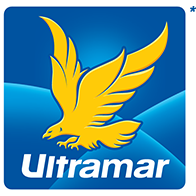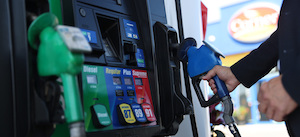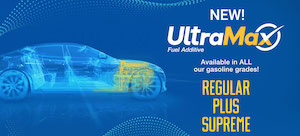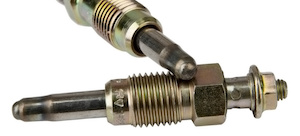How to Choose the Right Type of Fuel for Your Vehicle
Oct. 5, 2021
Oct. 5, 2021
With more choices than ever before, it can be difficult to know what kind of fuel you should put in your vehicle to keep it running smoothly.
Here’s a quick overview of how gasoline and diesel engines work. We’ll also go over the differences between the types of fuels available at most gas stations to help point you in the right direction the next time you fill up at the pump.
Part 1 – Gasoline Engines
How Does a Spark-Ignition Engine Work?
All modern gasoline-powered vehicles use this type of engine.
Unsurprisingly, spark-ignition engines rely on spark plugs, which must occasionally be replaced.
In short, the spark plugs produce a small spark that causes the gas mixture in the combustion chamber to ignite, thus allowing the engine to turn over. An engine’s compression ratio determines how much power it can deliver.
This is where the term octane rating comes into play.
Octane Rating
An octane rating measures a fuel’s resistance to knock or ignite prematurely. The higher the octane rating, the better the fuel is at resisting engine knocking.
This is important to consider when you have an engine with a high compression ratio. As the name suggests, the engine is under high pressure and therefore, is at an increased risk of prematurely igniting.
At Ultramar, our regular gasoline has an octane rating of 87. This is the recommended octane rating for most gasoline engines. Our Plus gasoline has an octane rating of 89, while our Supreme gasoline has an octane rating of 91.
UltraMax Fuel Additive
Fuel additives allow you to enhance certain aspects of the gas you put into your vehicle.
That’s why UltraMax gasoline additive is now available at all Ultramar service stations. This additive prevents buildup from impeding your engine. Ultimately making for a smoother, superior driving experience. Furthermore, it contains over twice the amount of cleaning additive required by the Canadian government.
UltraMax helps reduce harmful emissions, increase your vehicle's performance and improve your fuel economy.
UltraMax is now available in all grades of gasoline.
Part 2 – Diesel Engines
Diesel and gasoline engines may look similar. However, they operate on two different principles. In fact, a diesel engine can do what a gasoline engine does in one cycle instead of two. Unlike gasoline engines, diesel engines don’t have spark plugs. Instead, they have air compressors.
What Is the Fuel Composition?
Like gasoline, diesel is also a petroleum derivative. However, its composition is quite different from gasoline. It’s made up of 75% saturated hydrocarbons and 25% aromatic hydrocarbons. Gasoline, on the other hand, is made up of about four different kinds of hydrocarbons.
These distinctions make diesel suitable for compression ignition engines, or more simply put, diesel engines.
How Diesel Engines Work?
Diesel engines require a warmup period. This allows the glow plugs time to generate enough heat to help the fuel auto-ignite.
In diesel engines, the fuel must auto-ignite for the engine to turn over. In other words, diesel engines require auto-ignition, whereas gasoline engines try to avoid it.
For auto-ignition to occur, the diesel must be heated to a certain temperature by the glow plugs. Once the temperature of the fuel reaches a certain threshold, the engine can auto-ignite, and thus turn over.
Automotive diesel engines are used to power cars, trucks and construction equipment, as well as stationary engines for pumps and compressors. Larger diesel engines require heavier fuel.
How Do You Know What Type of Fuel to Use in Your Car?
You can easily find the answer in your vehicle’s owner’s manual. Every model has its own characteristics, including fuel specifications.
If you buy a new or used car directly from a dealership, the sales staff should be able to tell you what type of fuel to use. This information is provided by the manufacturer.
If you buy a car from a private seller, they should tell you this information. If you want to double-check, you can always call the manufacturer directly and speak with a customer service agent. Moreover, you can consult the manufacturer’s website or contact a reputable dealer that sells the same car model.
To choose the right type of fuel for your vehicle, always refer to your manufacturer's manual and do your research to stay up to date on the latest changes.










